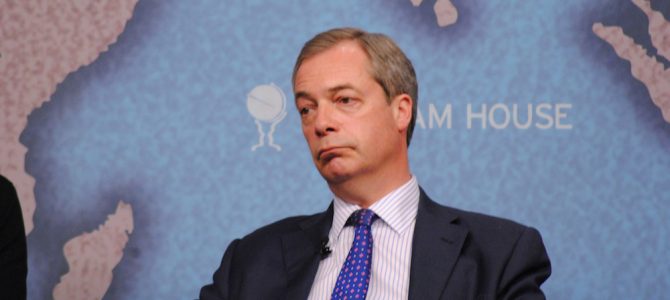
American politics has taken a bad turn. We see this in an increase in politically motivated criminal charges. At universities, students’ due process protections are being eliminated in favor of a politically modish star chamber. One presidential candidate even promised to appoint a special prosecutor to investigate the other.
Absent a serious reexamination of these practices, injustice will become a fixed custom. To see where we’re headed, we need only look to Europe, where prosecution for one’s politics has already become the norm.
During a 2014 election rally, Geert Wilders, Dutch parliamentarian and head of the Netherlands’ Party for Freedom (PVV), asked the crowd if they wanted fewer or more Moroccans in the country. Supporters chanted “fewer, fewer,” and Wilders replied, “We’ll take care of that.”
The Hague Public Prosecutors subsequently decided Mr. Wilders had committed a hate crime.
Wilders’ trial is not the beginning, and it won’t be the end of this type of legal miscarriage. Peering across the pond, one perceives a decaying continental rule of law, birthing its orphan child: the show trial.
The Perils of Political Dissent
The first property of the show trial is that its targets are political. Oddly enough, this selective prosecution seems to have affected only the European Right.
In the UK, the Crown Prosecution Service (CPS) acquiesced to 40,000-odd people who signed an online petition demanding the prosecution of Nigel Farage, former leader of the UK Independence Party (UKIP), by signaling that they might open a hate speech investigation against him. UKIP had just played a major role in persuading the British people to vote for Brexit. The petitioners, “remainers,” wanted to co-opt the CPS into their political retaliation.
In France, the National Front’s leader Marine Le Pen was similarly charged with “incitement to discrimination,” although she was ultimately exonerated. At various points, Le Pen has topped the polls for France’s next presidential election, and a National Front victory could mean the pursuit of a similar exit option from the EU for France. Like Farage and Wilders, if Le Pen was hobbled by a legal challenge, it might’ve benefited her political opponents.
And in Germany, Justice Minister Heiko Maas, a member of Chancellor Angela Merkel’s government, hinted that members of the right-wing party Alternative for Germany (AfD) should be prosecuted for hate speech. Minister Maas also threatened to indict Martin Ott, Managing Director of Facebook’s European branch, for not blocking content that accused Merkel of letting ISIS recruits migrate into Germany. Additionally, German Federal Police raided the homes of 60 members of a “secret [right-wing] Facebook group” to “combat hate postings.”
Add to this the February detainment of an anti-immigrant party PEGIDA member for refusing to remove a “fluffy pig hat” mid-protest.
Show Trials Aim to Eliminate Political Diversity
What all these investigations, indictments, and convictions have in common is their potential to neutralize political enemies. UKIP remains an electoral force that the British Left must contend with. Both AfD and PEGIDA have expanded their share of the German electorate, with AfD even beating Chancellor Merkel’s Christian Democratic Union in her home district. And if Geert Wilders is convicted, the verdict—which might affect the odds of a PVV victory—will be delivered only months before the next election, which he has a very good chance of winning.
Prosecuting a party’s leader benefits that party’s opponents. Not least because members will be less likely to come out in force if they believe they’ll be indicted for “voic[ing] a political opinion.” But the prosecution is selective: authorities lack zeal to enforce hate-speech laws when involved persons are not from the European Right.
No indictment materialized after a Dutch Imam said he was ready to die for his religion and kill others for it. There was no clamor for prosecution when an internal audit revealed a startling amount of anti-Semitism in the UK Labour Party. And neither should there have been.
We Should Not Seek To Silence Our Political Enemies
That’s the point. Prosecutorial power aimed at one’s political opponents will always bear the taint of illegitimacy. Criminalizing politics only pushes the infection deeper into the muscle and tissues of the polity, where it will fester into deadly malignance.
Witnessing Europe’s missteps, Americans should be wary. Learning a lesson from another’s mistake is inexpensive. Making the same one is costly.
Let’s not commit unforced errors. Politics should remain outside the criminal realm, and crime outside the political.








